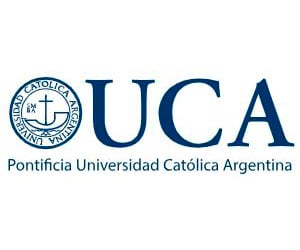Por Canosa Abogados
The Argentine National Congress is currently analyzing three amendments to law No. 21,526 that regulates the activities and functioning of Financial Entities since 1977 (the “Law on Financial Entities”).
Three bills are being discussed by the Financial Committee of the House of Representatives, in order to modify the Law on Financial Entities. The bills were introduced by the following deputies:
- Carlos Heller, member of the political party Encuentro Popular, closer to the current administration;
- Gerardo Milman, member of Generación Encuentro Nacional (GEN); and
- Federico Pinedo, member of Propuesta Republicana (PRO).
We will analyze the main characteristics of the three bills:
- Bill introduced by Carlos Heller, from Encuentro Popular:
The bill introduced by Deputy Carlos Heller proposes to replace the Law on Financial Entities by a so-called “Law of Financial Services for Economic and Social Development”, which would be conceived from the point of view of the needs of consumers, hence regulating financial services as a public service aimed to favor the “transactional” needs, of savings and credit “for all citizens of the nation”.
The proposed bill aims at regulating the activity of banks in an exhaustive manner, providing a restricted list of authorized operations for commercial banks (numerus clausus), in opposition to the previous criteria of admitting all operations that were not specifically forbidden, a move towards a specialized banking model.
The Central Bank will be in charge of watching over the limitations established by the proposed regulation.
Additionally, the bill includes a restricted list of types of financial entities, in accordance with the specialized banking model.
The main points of the bill are:
- More restrictive criteria for the activities of foreign banks in Argentina, defined as those entities with more than 30% of their capital being of foreign origin.
- Maximum interest rates for loans to micro and small-sized business. The rates may not surpass in a proportion of five percent (5%) the weighted average rate of the financial system for that segment. Simultaneously, a maximum rate for personal loans for less than one hundred thousand pesos (approximately US$ 25,000).
- Financial entities will have to assign, directly or indirectly, not less than thirty eight percent (38%) of their total financings in the private sector to micro, small, and medium-sized businesses, and two percent (2%) to small undertakings.
- No financial entity will be able to hold participations in the whole financial system superior to eight percent (8%), both in the total of the deposits of the private sector, and in the total of loans granted to the private sector.
- A geographical criterion will be laid down in order to allow the opening of new branches of financial entities.
The alleged purpose of this bill is to promote the universal access to financial services (its referred to as democratization of the financial system).
- Bill introduced by Gerardo Milman, of GEN:
The project introduced by Deputy Gerardo Milman proposes to replace the Law on Financial Entities by the “Law on Financial Relations and Guarantees to the User of Credits and Deposits”, which promotes public saving and the spread of banking entities throughout the national territory.
The bill establishes a saving system for individuals under legal age, by means of granting special accounts without administrative charges, willing to revitalize an old scheme and to improve the relation of people with the banks in the long term.
Additionally, the bill includes micro-credits banks as a type of financial entity, with the aim to “give a possibility of development to all citizens and give assistance to those activities that in the past did not qualify for any type of financing, because of their size or the situation of the citizens”.
This proposal is inspired by the microfinance system of the Grameen Bank that succeeded all around the world.
Finally, the bill includes several regulations on the publicity made by financial entities, establishing that only authorized financial entities will be able to use the denomination provided for them by the law, in order to protect users, thus prohibiting any type of publicity or action tending to gain clients by non-authorized entities.
- Bill introduced by Federico Pinedo, of PRO:
The bill introduced by Deputy Federico Pinedo defines the banking activity as of public interest, as opposed to its characterization as public service made by the bill introduced by Deputy Carlos Heller.
The bill establishes that the financial activity cannot be considered as a public service, or as a simple activity, given the magnitude of the activities involved and their effects. In such context, the characterization as a public interest will assure the supervision of the State over the authorization given to the private sector that renders the financial services.
The promoters of the bill say that it “seeks the protection of savers, to guarantee that those who access to credit do so in reasonable conditions in order to finance their activities, considered as the only way of generating genuine employment”.
The main points of this proposal are the following:
- Creation of a free unique universal account;
- Development of a system for the opening of bank branches;
- Implementation of a system of mandatory guarantee on banking deposits, in order to restore the responsibility of transactions to financial entities and to guarantee to depositors the full and effective reimbursement of their funds in the case of liquidation of a financial entity;
- Protection of users and consumers by means of the creation of the figure of the Ombudsman of Users and the Administrative Court on financial matters;
- Prevention of practices of money laundering and financing of terrorism, with emphasis in preventive policies over repressive policies;
- Creation of an Advisory Committee of Monetary and Credit Policy to coordinate the policies between the Central Bank and the Ministry of Economy, among others; and
- Creation of a Debtors Central in order to facilitate access to credit for individuals, and a Financial Statements Central for companies, in order to promote competition between financial entities for gaining those clients who have good financial behavior.
In connection with the types of entities, the bill adds exchange entities to the financial entities regime, and additionally, although the bill includes a detailed list of the types of entities subject to the financial entities regime, it also provides that the Central Bank may include any other financial entity, based on the volume of its activities or for monetary and credit policies reasons.
Additionally, the bill proposes to eliminate the distinction between Argentine and foreign financial entities with absolute equality of treatment between foreign and national entities, considering that this will not obstruct but promote the development and insertion of Argentine work in other countries, opening channels of opportunities and inexpensive financing for local capital.
Notwithstanding the abovementioned, foreign financial entities will have to disclose to their clients and make vast diffusion of the reach of the guarantee and support given by their parent entities or parent companies to the local entities´ operations in Argentina.
Among other things, the bill proposes to establish an organic method of relation between the monetary authority and the political power, without detriment to the autonomy of the first one or the legitimacy that the popular representative concedes to the second one.
The authors of the bill said that “the purpose of the bill is to generate a long term structural change willing to obtain a productive economy, plenty of saving, seriousness and credit”.
Conclusions:
The most important difference between the bills is the character of public service that the bill of Encuentro Popular tries to attribute to the financial activity.
In opposition, the bill introduced by GEN refers to the financial activity not as a public service but as a public interest.
This distinction is crucial in terms of the role of the State in the financial activity, considering that the characterization as public service involves a concession (which might be revocable), and in the case of a public interest, it is matter of an authorization given by the State.
Thus, the bill introduced by the GEN party authorizes commercial banks to conduct all the operations that are not prohibited, in contrast, and in a stricter sense, the bill introduced by Encuentro Popular explicitly details the activities that commercial banks can do, jointly with the creation of a Code of Conduct of the organizations entrusted to the Central Bank.
The adoption of either concept is preferable to the adoption of a single system combining elements of both, which would turn the financial system into a hybrid.
However, both bills have convergent points in relation to the protection of users of the financial system, as a response to the past financial crisis, a topic which is also being considered in the banking reform under discussion in the United States at the moment.
On the other hand, the bill introduced by PRO does not put the accent in these questions but in public saving and prevention of money laundering.
This bill assures that the banking system and the financial activity should not be considered as public services, since that would lead to greater intervention of the State in the banking and financial activity.
We can conclude that the three bills agree in impelling the protection of the consumer and the extension of banking accessibility to all sectors of society, and to micro, small and medium-sized businesses.
The question is if any of these bills is sincerely aimed to reform the financial system in a permanent way or they will result just in another temporary amendment.
Bill for amending the Organizational Law of the Central Bank:
Apart from the bills introduced for modifying the Law on Financial Entities, the deputy and legal advisor to the General Confederation of Work (the CGT), Héctor Recalde, introduced a bill in the National Congress, which had been previously proposed by the current president of the Central Bank, Mercedes Marcó del Pont, in order to modify the Organizational Law of the Central Bank.
The initiative proposes to modify section 3 of the Organizational Law of the Central Bank, which determines the purposes of the monetary authority. “It is the primary and fundamental mission of the Central Bank to preserve the value of the currency”, the current version says.
The bill proposes to extend the purpose of the Central Bank and to include that the Central Bank should support economy and full employment.
Additionally, the bills states that it constitutes primary mission of the Central Bank to preserve the value of the currency, in consistence with policies oriented to maintain a high level of activity and full employment, in a context of sustainable expansion of economy, and to guarantee the stability of the financial system.
The bill aims to differentiate the mission of the Central Bank today from the one of the 90s, when there was a fixed exchange rate.
The new version of the Organizational Law emphasizes the functions of cooperation between the entity and the objectives of the national government.
The proposed text for section 3 reads: “In the formulation of monetary, credit, financial and exchange policies, the Central Bank will coordinate its work with the National Executive Power, without being subject to orders, indications or instructions of the latter on the management of the means of its competence”.
The new proposed text comes to respond to the close relation that has existed between the Central Bank and the Executive Power in the last period, which caused the removal of the previous president of the banking organization.
Opinión
Juztina IA


opinión
ver todosNegri & Pueyrredón Abogados
Noetinger & Armando























































































































